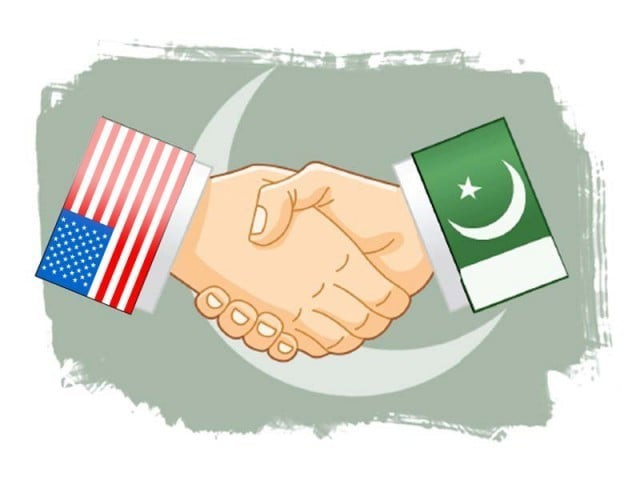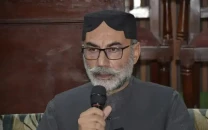'Isolating' Pakistan not in US interest: think tank
Counterterrorism, military ties termed cornerstone of cooperation

A US think tank has advised the Trump administration to pursue a pragmatic and interest-driven relationship with Pakistan, emphasising that isolating the South Asian nation is counterproductive to American national security interests.
"Isolating Pakistan is not in the United States' national security interests. Pakistan's cooperation, even if selective and limited, is better than its intransigence," reads a report of Hudson Institute, a research organization promoting American leadership for a secure, free, and prosperous future.
Titled "Engaging Pakistan in a New Era of US Foreign Policy", the report is the product of the US-Pakistan Study Group, comprising seasoned diplomats and analysts. Contributors include Former Ambassador Husain Haqqani, Sahar Khan, Michael Kugelman, Ambassador Cameron Munter, Ambassador Anne Patterson, Ambassador Robin Raphel, Harlan Ullman, Dr Marvin Weinbaum, and Uzair Younus.
The report says the United States and Pakistan have a long history of working together. Moving forward, both countries could benefit from identifying common interests and cooperating accordingly. Even selective or limited cooperation from Pakistan is seen as more valuable than disengagement.
The report says the recent India-Pakistan crisis reportedly brought the two nuclear-armed South Asian countries to the brink of war before the United States intervened and pulled them back.
"This crisis highlights the need for continued US engagement with Pakistan, a critical country in a geostrategic location with which Washington has historically had a complex relationship," it adds.
The relationship between Pakistan and the United States has weathered many ups and downs. In the opening months of his second term, President Donald Trump has indicated that he intends to adopt a more pragmatic foreign policy, one that maintains relations even with countries that hold beliefs or values different from his own, according to the report.
As a result, the relationship between the United States and Pakistan has a better chance of improvement than it has enjoyed in recent yearsif both countries' leaders are able to focus on shared interests rather than ideological differences.
In the aftermath of the 2025 crisis, US policymakers are emphasising the importance of engaging with both India and Pakistan to prevent and manage crises between the two nuclear-armed neighbors. Given the serious threat posed by any future conflict or nuclear escalation in South Asia, the United States is encouraged to take an active role in mediation efforts during such crises.
The experience of past administrations has shown that Pakistan's strategic calculus about India is unlikely to change through either incentives or pressure. Instead, a more realistic approach is advisedone that accepts Pakistan's self-perception and works within that framework rather than attempting to reshape it.
Another area of mutual interest is counterterrorism. While the United States continues to monitor terrorist groups, Pakistan also faces internal threats from militant extremist organizations.




















COMMENTS
Comments are moderated and generally will be posted if they are on-topic and not abusive.
For more information, please see our Comments FAQ